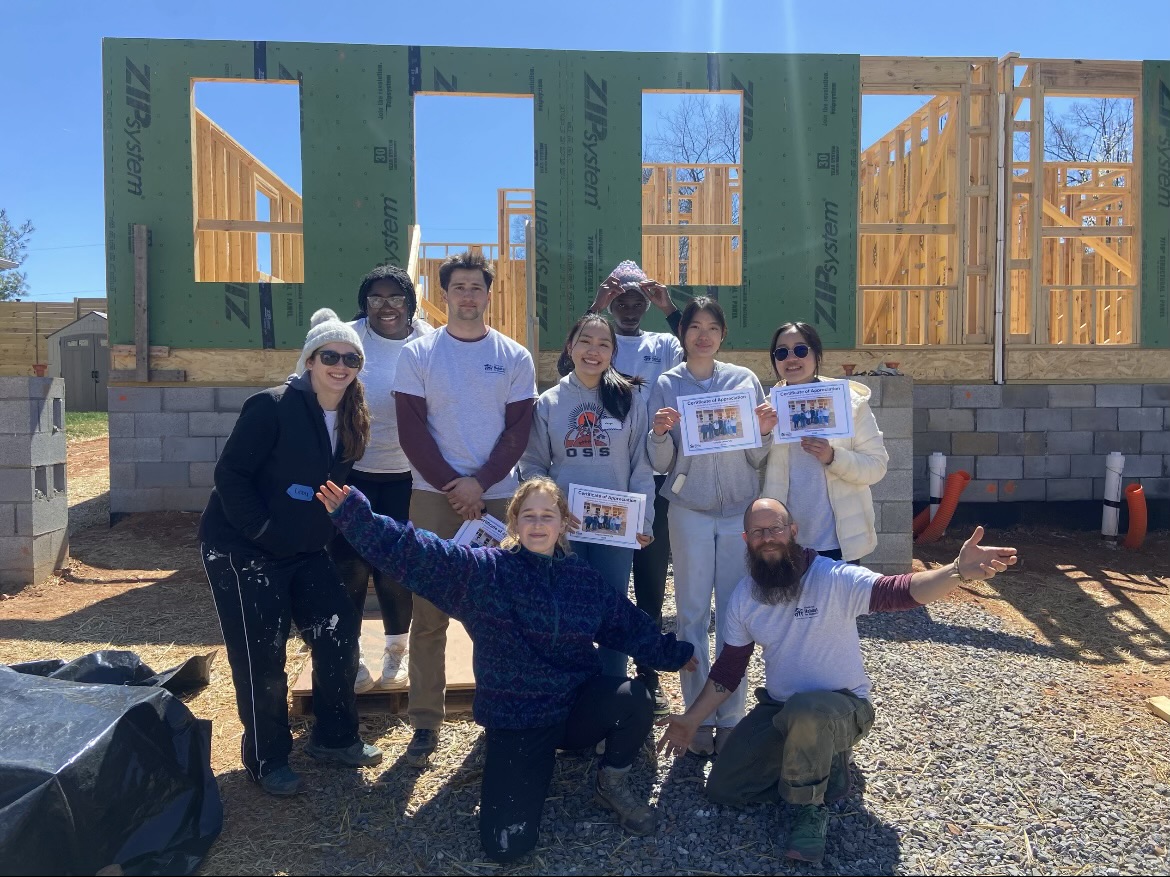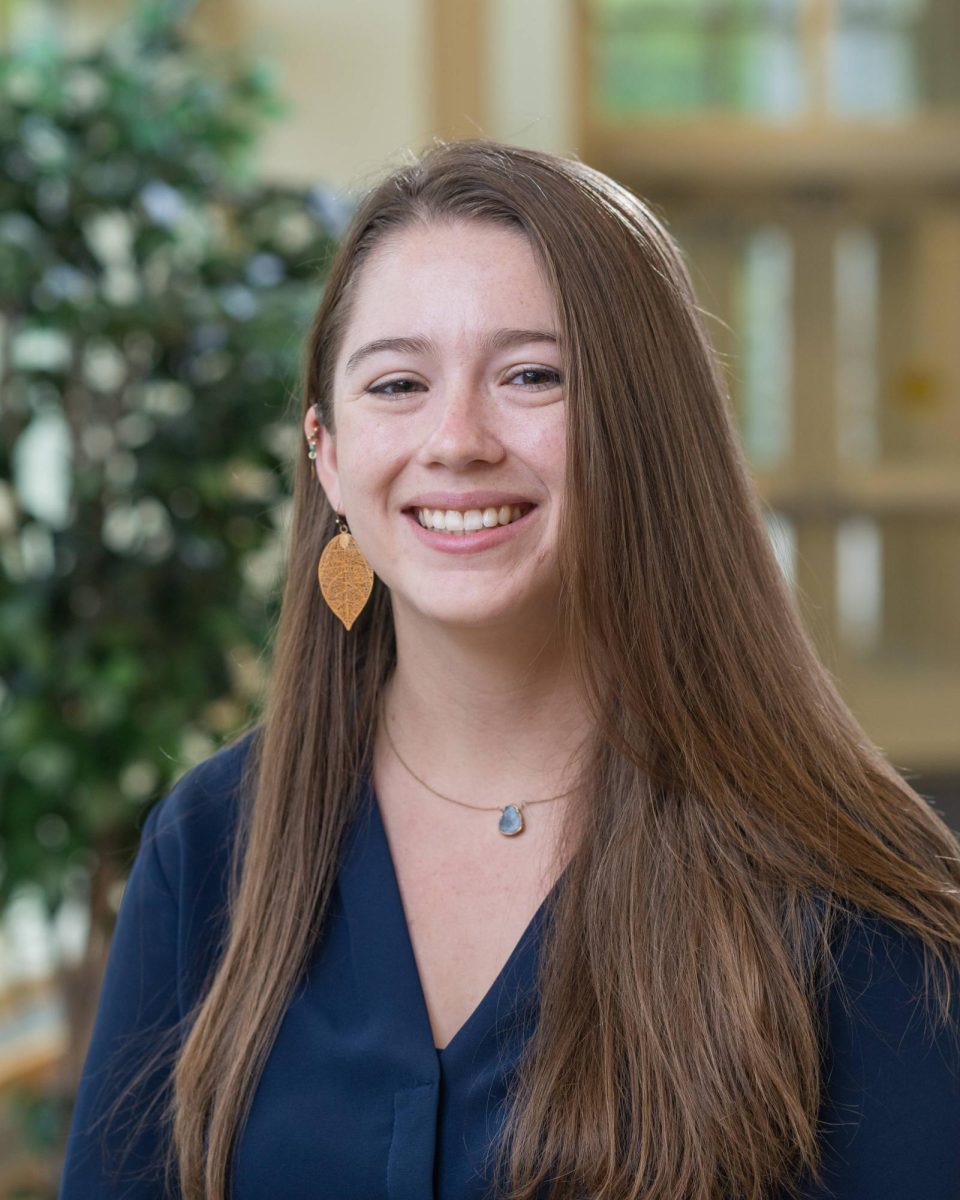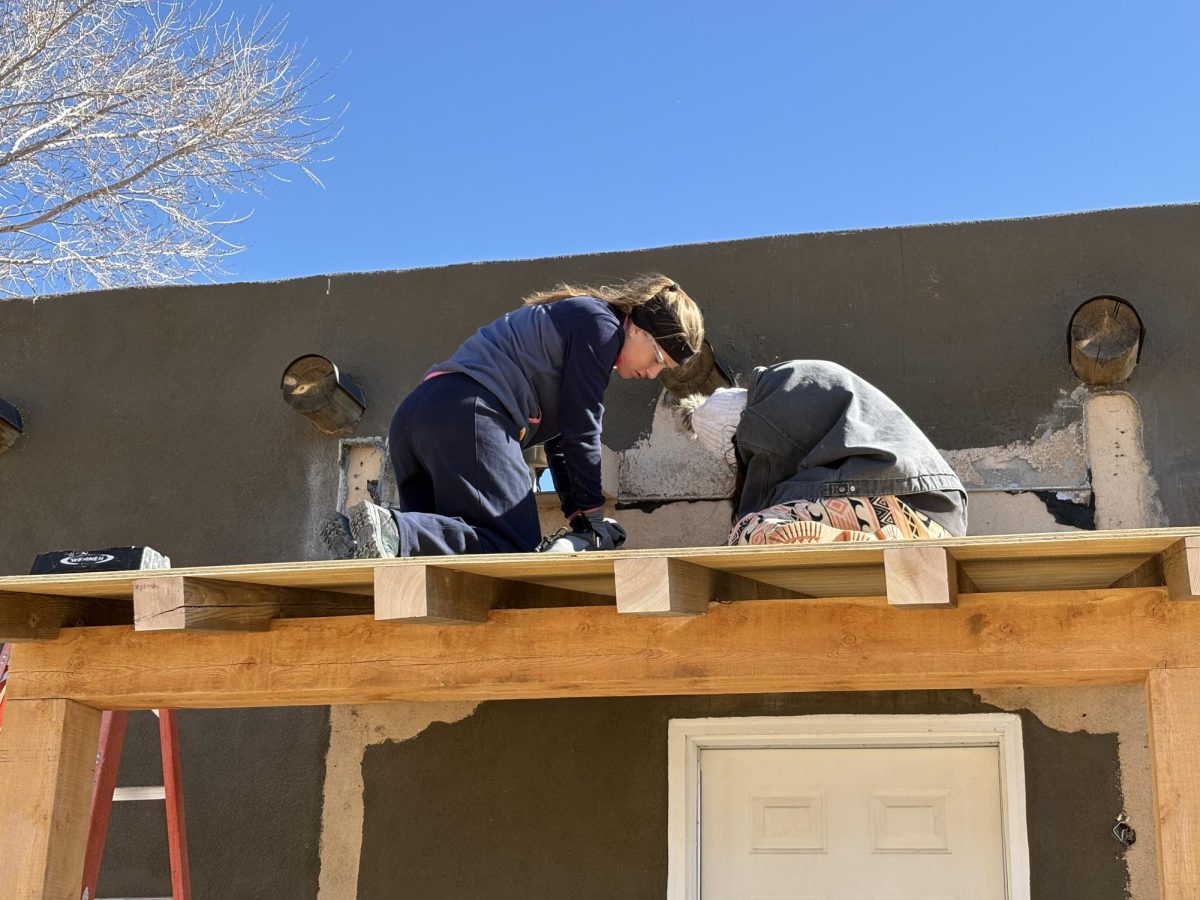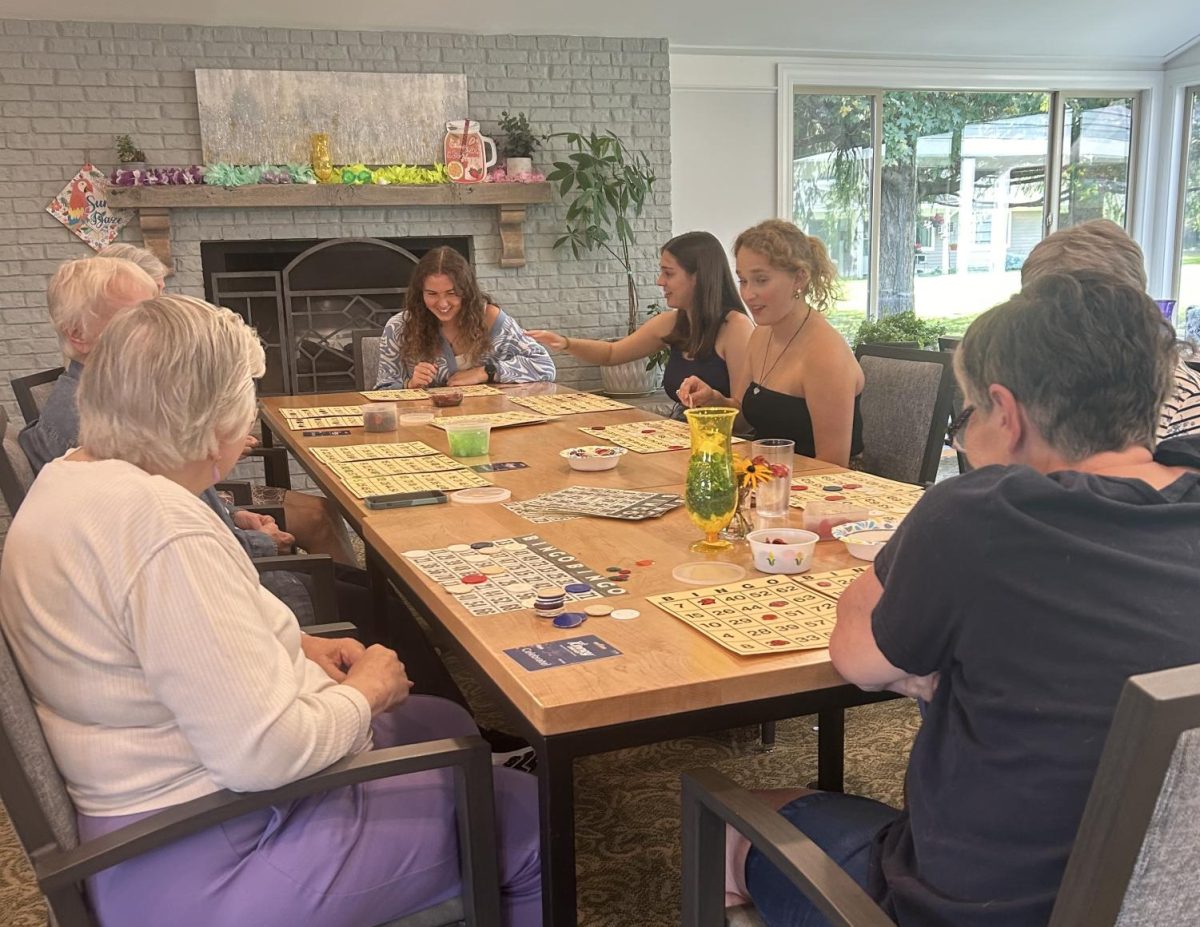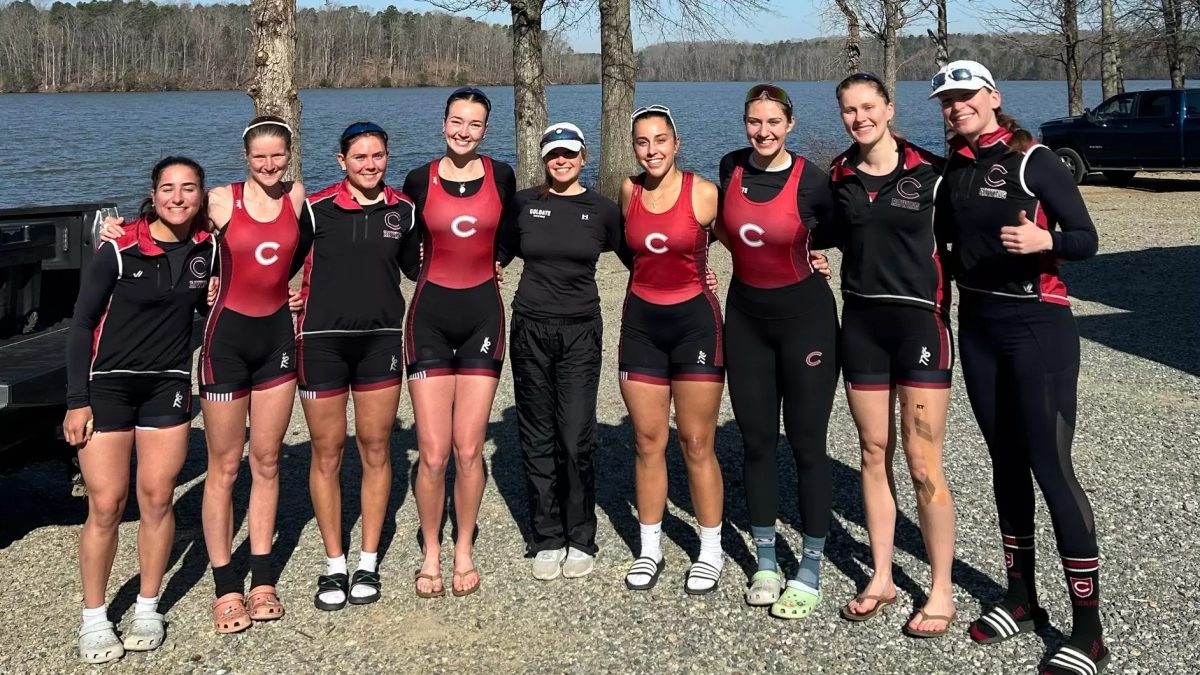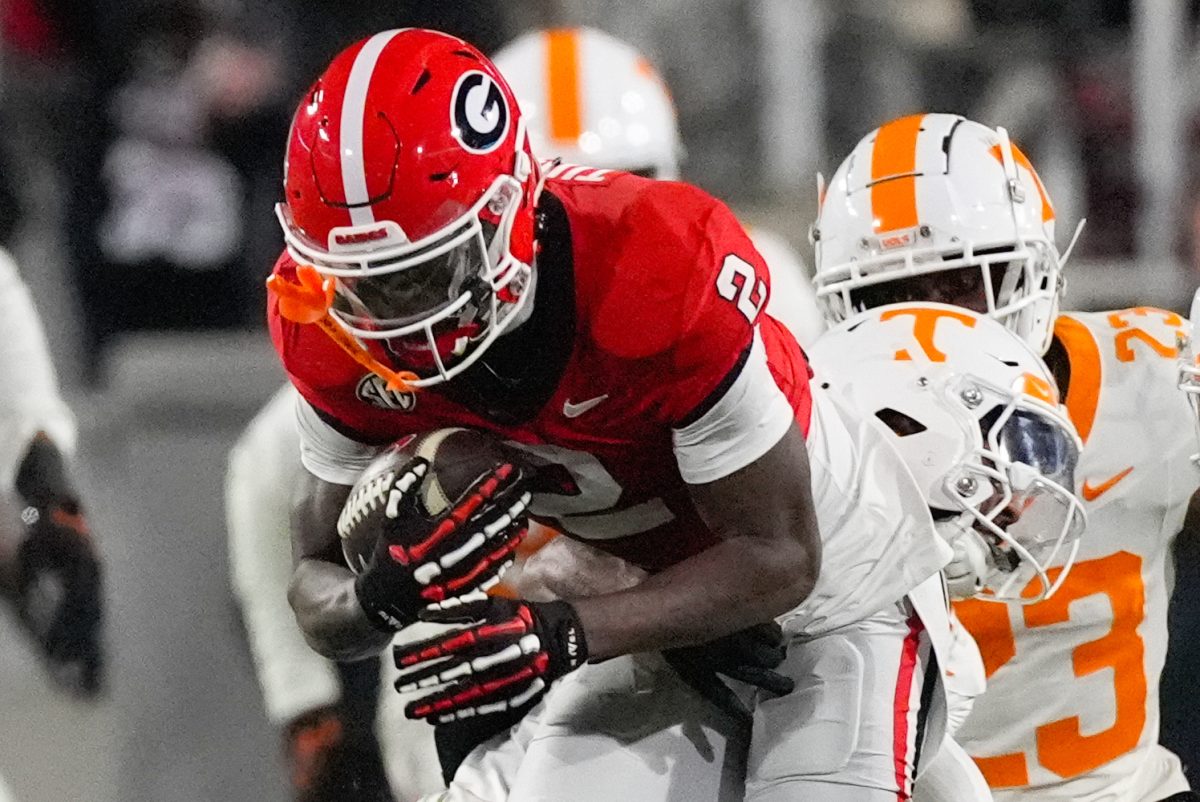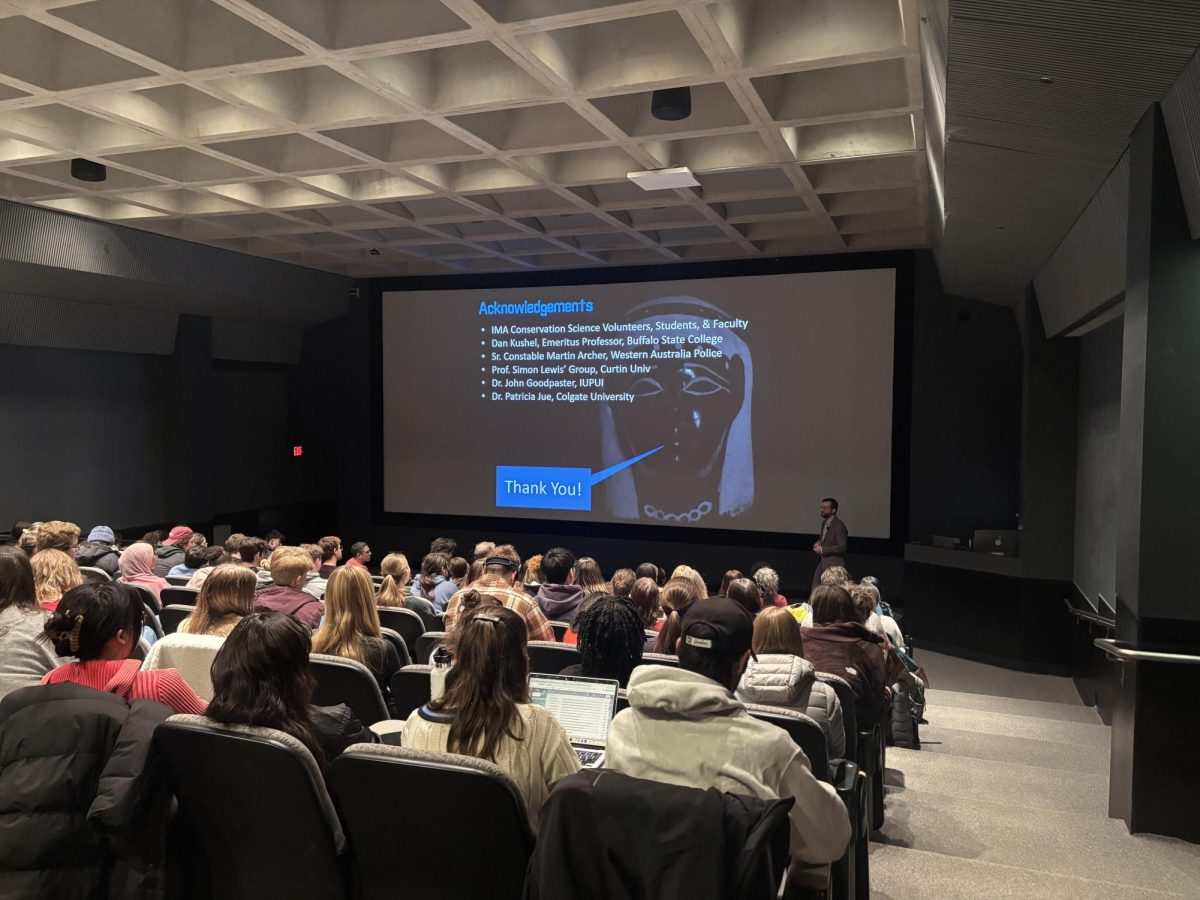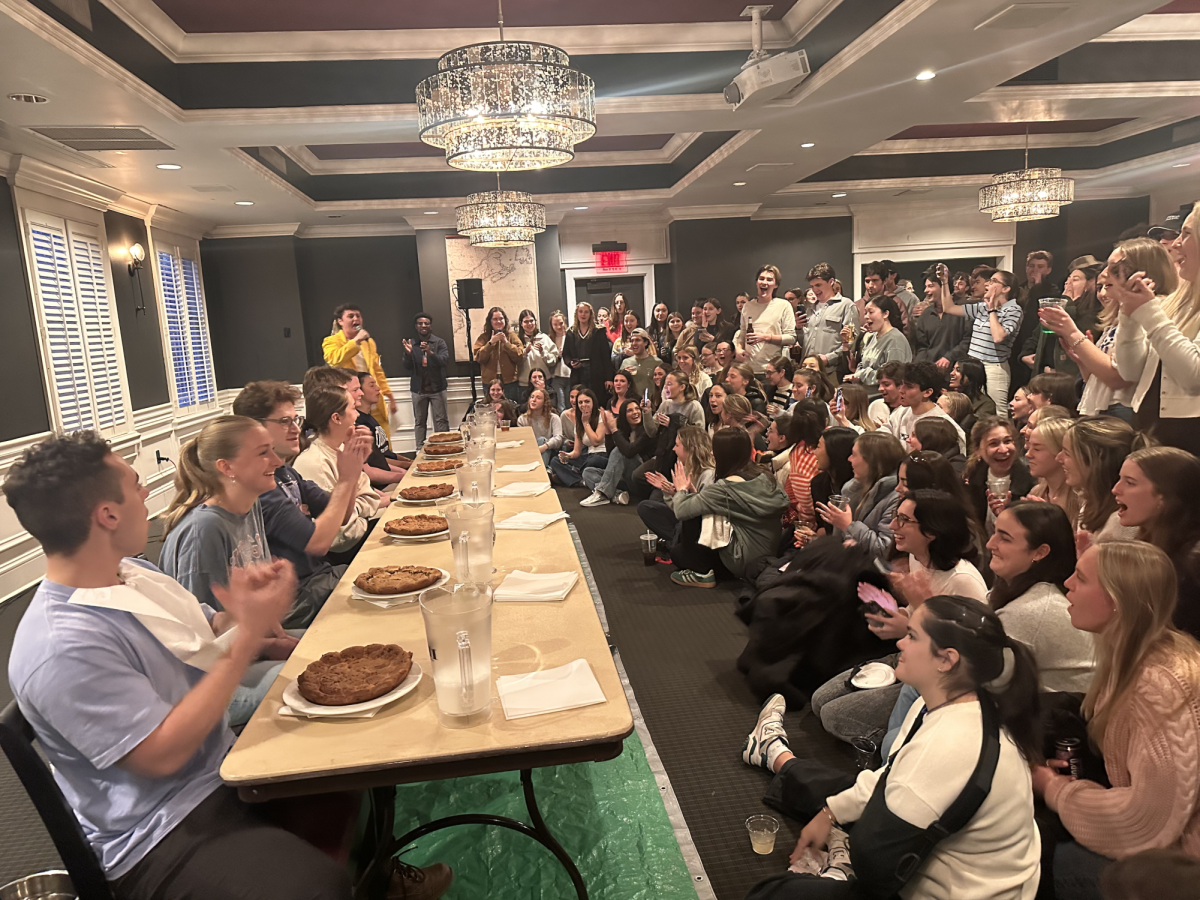Life at Colgate University can easily consume students in the “Colgate bubble,” making them feel far from the real world. Worldwide events seem insignificant to students’ lives on the hill. Democracy Matters seeks to break this bubble by engaging students in politics through the discussion of political issues.
Democracy Matters members, including junior Logan Wilson, and first-years Yaroslav Spytskyi and John Timko, are tabling in Frank Dining Hall during the weeks leading up to Election Day. Their goal was to encourage students to fill out a form that asked them how important different political issues were to them. As students would pass by, some would complete the form, while others were simply reminded about the importance of democracy, both of which the organizers hoped would encourage engagement in the election.
However, this is far from all that Democracy Matters does. Wilson described the goals Democracy Matters has as an organization.
“[Democracy Matters is] a non-partisan political organization here at Colgate,” Wilson said. “Right now we have been mostly focused on getting people registered to vote and more knowledgeable on specific issues related to the election. We advocate for policy changes, specifically election reform.”
The upcoming presidential election has led this engagement to take multiple forms, as Democracy Matters promotes different ways for students to get involved. Wilson described some of the events Democracy Matters hosts to promote student engagement.
“We also do brown bags, where we have professors speak on specific issues. In the past, we’ve done a brown bag on gerrymandering,” Wilson said. “These events are designed to promote student engagement on specific policies.”
Furthermore, Democracy Matters has been cultivating engagement for much larger political events, namely the upcoming election. With the upcoming presidential election, Wilson shared the club’s more expansive role on campus.
“Our biggest events this semester have been things like debate watch parties, which give people a space to talk about the events to get more involved,” Wilson said. “We will be doing an election night watch party, and just be talking about what’s going on, and getting people more knowledge on that process.”
Additionally, Wilson shared that Democracy Matters will coordinate with the Max A. Shacknai Center for Outreach, Volunteerism and Education (COVE) to provide transportation for students who plan to vote in-person at the Hamilton Public Library. Representatives from the organization will also be walking to the polls with students and have been attending classes and clubs meeting to encourage voting.
Beyond the promotion of democracy to students, all members found value in Democracy Matters for themselves.
“It gives me a space to talk about politics where I may not have that space otherwise,” Wilson shared. “This is an environment where you can really talk about issues and get more knowledgeable, on specific policies and American politics in general.”
Timko said was in agreement with Wilson and emphasized the importance of having a safe space to discuss politics on campus.
“Having and finding a space to just talk about issues is something that interests me,” Timko said. “I think it’s a unique kind of space because I think people will talk about politics outside of clubs. But to actually get down to the nitty-gritty, you kind of have to be in a community like this, that’s willing to really go into it and break it down. I think that’s what makes Democracy Matters really unique.”
“I went to the meeting and I thought it was really cool and interesting because we educate people on issues,” Spytskyi agreed. “I think it’s really great because it really helps to make democracy work.”
These discussions as a group, combined with initiatives to promote democracy within the larger student body, help to engage all to participate in politics.
Often, Wilson shares a similar message to those who are hesitant to vote in the upcoming election.
“They should really reconsider, because elections determine who runs the government and the policies that they enact,” Wilson said. “Whether it is president or county clerk, they can have a huge impact on people’s lives.”


